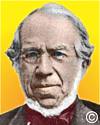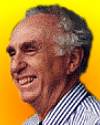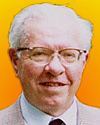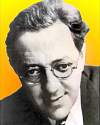 | TODAY IN SCIENCE HISTORY NEWSLETTER - 24 JUNE |
| Feature for Today |
 On 24 Jun 1788, Thomas Blanchard was born, an American inventor who made major contributions to the development of machine tools and invented a number of machines including the famous lathe that bears his name. At age 13, he developed an apple-paring machine, and later he devised a machine to mass-produce tacks without the tedious handwork of heading the tack. On 24 Jun 1788, Thomas Blanchard was born, an American inventor who made major contributions to the development of machine tools and invented a number of machines including the famous lathe that bears his name. At age 13, he developed an apple-paring machine, and later he devised a machine to mass-produce tacks without the tedious handwork of heading the tack.This article from A History of American Manufactures from 1608 to 1860 (1866) gives some more information on his inventiveness. |
| Book of the Day | |
 On 24 Jun 1915, Fred Hoyle was born, an English mathematician and astronomer, who coined the term "Big Bang" as a derisive reference to the theory in which he did not believe. He supported a different theory for the origins of the universe. Today's Science Store pick is: A Different Approach to Cosmology, by Fred Hoyle with two other respected astrophysicists, G. Burbidge and J. V. Narlikar. They present the best-developed alternative theory to the "Big Bang," with scientific arguments written to be accessible to upper-division undergraduate students in physics and astrophysics. According to Physics Today, "This is a fascinating book, expressing the views of three scientists who choose to go against the conventional cosmological wisdom. It is extremely important for such skepticism to exist and for such books to be written." Available Used from $23.05 (as of time of writing). On 24 Jun 1915, Fred Hoyle was born, an English mathematician and astronomer, who coined the term "Big Bang" as a derisive reference to the theory in which he did not believe. He supported a different theory for the origins of the universe. Today's Science Store pick is: A Different Approach to Cosmology, by Fred Hoyle with two other respected astrophysicists, G. Burbidge and J. V. Narlikar. They present the best-developed alternative theory to the "Big Bang," with scientific arguments written to be accessible to upper-division undergraduate students in physics and astrophysics. According to Physics Today, "This is a fascinating book, expressing the views of three scientists who choose to go against the conventional cosmological wisdom. It is extremely important for such skepticism to exist and for such books to be written." Available Used from $23.05 (as of time of writing).For picks from earlier newsletters, see the Today in Science Science Store home page. | |
| Quotations for Today | |
 | "My final remark to young women and men going into experimental science is that they should pay little attention to the speculative physics ideas of my generation. After all, if my generation has any really good speculative ideas, we will be carrying these ideas out ourselves." |
 | "It is often held that scientific hypotheses are constructed, and are to be constructed, only after a detailed weighing of all possible evidence bearing on the matter, and that then and only then may one consider, and still only tentatively, any hypotheses. This traditional view however, is largely incorrect, for not only is it absurdly impossible of application, but it is contradicted by the history of the development of any scientific theory. What happens in practice is that by intuitive insight, or other inexplicable inspiration, the theorist decides that certain features seem to him more important than others and capable of explanation by certain hypotheses. Then basing his study on these hypotheses the attempt is made to deduce their consequences. The successful pioneer of theoretical science is he whose intuitions yield hypotheses on which satisfactory theories can be built, and conversely for the unsuccessful (as judged from a purely scientific standpoint)." Co-author with British astronomer, Raymond Arthur Lyttleton (1911-95). |
| QUIZ | |
| Before you look at today's web page, see if you can answer some of these questions about the events that happened on this day. Some of the names are very familiar. Others will likely stump you. Tickle your curiosity with these questions, then check your answers on today's web page. | |
| Births | |
 |  Martin Lewis Perl, born 24 Jun 1927, won the 1995 Nobel Prize for Physics for discovering a subatomic particle (in the mid-1970's) which was a massive lepton with a negative charge, the first evidence of a third "generation" of fundamental particles. Martin Lewis Perl, born 24 Jun 1927, won the 1995 Nobel Prize for Physics for discovering a subatomic particle (in the mid-1970's) which was a massive lepton with a negative charge, the first evidence of a third "generation" of fundamental particles. What did he name this particle? What did he name this particle? |
 |  On 24 Jun 1915, Sir Fred Hoyle was born, an English mathematician and astronomer. He became Britain's best-known astronomer in 1950 with his broadcast lectures on The Nature of the Universe, and he recalled coining the term "Big Bang" in the last of those talks. Even so, Hoyle never accepted the now most popular "Big Bang" theory for the origin of the universe. On 24 Jun 1915, Sir Fred Hoyle was born, an English mathematician and astronomer. He became Britain's best-known astronomer in 1950 with his broadcast lectures on The Nature of the Universe, and he recalled coining the term "Big Bang" in the last of those talks. Even so, Hoyle never accepted the now most popular "Big Bang" theory for the origin of the universe. What theory for the universe did Hoyle promote? What theory for the universe did Hoyle promote? |
| Deaths | |
 |  Willy Ley (1906-1969) was a German-American engineer who was a founder of the German Rocket Society. The society was the first group of men (with the sole exception of Robert Goddard) to experiment with rockets. Ley was consultant for the science fiction film Frau im Mond in which the countdown from ten to zero was introduced. Fiercely anti-Nazi, in 1934, he emigrated to the U.S. rather than pursuing military applications of rocketry. In the U.S., he became a popularizer of space exploration and travel, writing many popular books. Willy Ley (1906-1969) was a German-American engineer who was a founder of the German Rocket Society. The society was the first group of men (with the sole exception of Robert Goddard) to experiment with rockets. Ley was consultant for the science fiction film Frau im Mond in which the countdown from ten to zero was introduced. Fiercely anti-Nazi, in 1934, he emigrated to the U.S. rather than pursuing military applications of rocketry. In the U.S., he became a popularizer of space exploration and travel, writing many popular books.  Can you name the man Lay introduced to the society who is the best known German to conduct rocket experiments during World War II? Can you name the man Lay introduced to the society who is the best known German to conduct rocket experiments during World War II? |
| Events | |
 In 1873, a well-known American author received a U.S. patent for a self-pasting Scrapbook (No. 140245). His invention was to coat the pages of the scrapbook with mucilage or adhesive. He suggested two forms. In one form, the pages would be coated within patches of adhesive with intervals of untreated paper between them. The second form was to coat the entire page. In either case, only sufficient area of the leaf is moistened that is necessary to hold the piece that is to be pasted in. In 1873, a well-known American author received a U.S. patent for a self-pasting Scrapbook (No. 140245). His invention was to coat the pages of the scrapbook with mucilage or adhesive. He suggested two forms. In one form, the pages would be coated within patches of adhesive with intervals of untreated paper between them. The second form was to coat the entire page. In either case, only sufficient area of the leaf is moistened that is necessary to hold the piece that is to be pasted in. Can you name this author? Can you name this author? | |
| Answers |
When you have your answers ready to all the questions above, you'll find all the information to check them, and more, on the June 24 web page of Today in Science History. Or, try this link first for just the brief answers. Fast answers for the previous newsletter for June 23: Alan M. Turing; plane polarized; Jonas Edward Salk; Wilhelm Eduard Weber; -117�F; the decade including the year 1964; Adolphe Sax. |
| Feedback |
 If you enjoy this newsletter, the website, or wish to offer encouragement or ideas, please send feedback by using your mail reader Reply button. If you enjoy this newsletter, the website, or wish to offer encouragement or ideas, please send feedback by using your mail reader Reply button. |
--
If you do not want to receive any more newsletters, Unsubscribe
To update your preferences and to unsubscribe visit this link

Δεν υπάρχουν σχόλια:
Δημοσίευση σχολίου